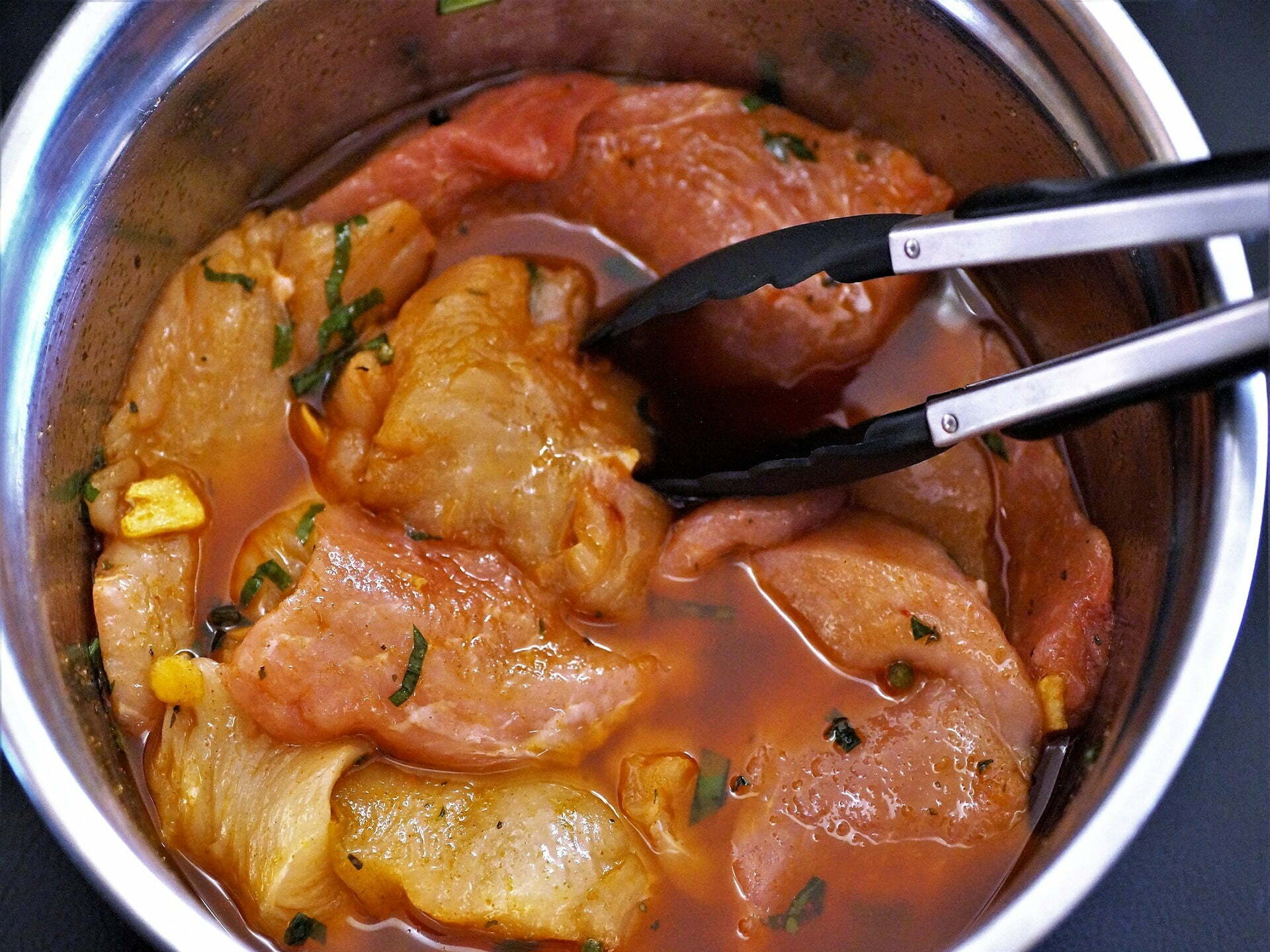Marinades are used in the process of soaking foods in a seasoned, often acidic, liquid prior to cooking. We have chicken marinades, beef marinades, fish marinades, lamb marinades to name a few. The process helps with the absorption of liquids and flavours. They are either acidic or enzymatic. In addition to these ingredients, they often contains oils, herbs, and spices to further flavour the food items. Also, you can use the marinade to baste the meat or fish whilst it is cooking to further enhance the flavour. The longer you leave protein in a marinating the deeper the flavour absorbs.
Marinades are flavourful mixtures of liquids, seasonings, and sometimes acids that tenderize and enhance the flavour of meats, seafood, and vegetables. They serve both practical and culinary purposes, adding depth and complexity to dishes while tenderizing tougher cuts of meat. The types of marinades and their uses vary widely, catering to different cuisines and cooking techniques.
Types of Marinades:
Acidic Marinades: These typically include ingredients like vinegar, citrus juices (lemon, lime, orange), or wine. The acidity helps break down proteins and tenderize meats. Examples include lemon-garlic marinade for chicken and balsamic vinegar marinade for steak.
Dairy-based Marinades: Yogurt or buttermilk marinades are common, especially in Indian and Middle Eastern cuisines. They tenderize meat while imparting a creamy texture and tangy flavour. Tandoori chicken and Greek-style lamb are popular examples.
Oil-based Marinades: These are made with oils (olive oil, vegetable oil) mixed with herbs, spices, and sometimes acids like vinegar or citrus juice. Oil-based marinades coat proteins and vegetables, locking in moisture and flavour. Mediterranean herb marinade for vegetables and garlic-rosemary marinade for lamb are classic examples.
Dry Rubs: While technically not a liquid marinade, dry rubs consist of dry spices and seasonings rubbed onto meat or vegetables. They form a flavourful crust when grilled or roasted. Examples include Cajun spice rub for chicken and barbecue dry rub for ribs.
Uses of Marinades:
Marinades are versatile and can be used for various purposes in cooking:
Tenderization: Acids and enzymes in marinades break down tough fibres in meat, making it more tender and easier to chew.
Flavour Enhancement: Marinades infuse meats, seafood, and vegetables with aromatic herbs, spices, and other flavourings, enhancing their taste.
Moisture Retention: Oil-based marinades create a barrier that helps proteins retain moisture during cooking, preventing them from drying out.
Preparation for Cooking Methods: Marinating prepares ingredients for grilling, baking, or sautéing by imparting flavour and ensuring even cooking.
In summary, marinades are culinary tools that not only enhance the taste and texture of dishes but also offer endless possibilities for creativity in the kitchen. Whether you’re preparing a quick weeknight meal or a special occasion feast, choosing the right marinade can elevate your cooking to new heights of flavour and tenderness.


